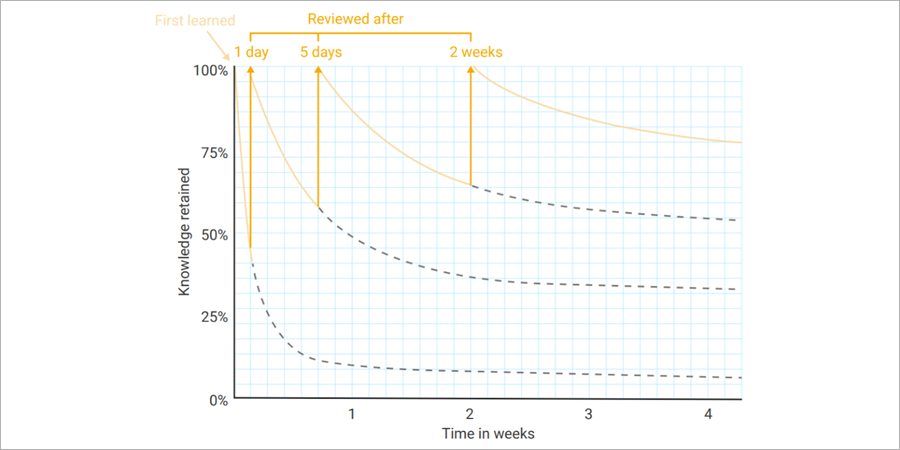This week thousands of students across the country are sitting down to take their first GCSE exams. Your students need to walk into the exam hall with plenty of knowledge to draw on but, in a packed curriculum across a wide range of subjects, even the most able students can have a hard time recalling the mountain of knowledge needed.
So how can you ensure that students retain an in-depth knowledge and understanding of concepts studied, in some cases, as early as the beginning of Year 9?
The answer lies in harnessing the power of their long-term memory through retrieval practice – and it isn’t as hard as it sounds.
Use it or lose it
Our brains are in the habit of forgetting: there is a lot of unimportant information we take in day to day that we don’t need to store. But, if we want to retain a certain piece of information, we need to work to transfer it to long-term memory. The best way to achieve this is by training ourselves to remember it with repeated recall. By doing this we give our brains the signal that this information is something we need and therefore it should be stored securely and accessibly. Passwords and phone numbers are a good example of this effect. Those we use a lot are regularly brought to mind and well known to us. Those we don’t need as often are all too easily forgotten.
This is the idea behind retrieval practice, which is becoming increasingly popular in schools. Cognitive psychologists and educators alike agree that the very best way to combat forgetting and make sure students can access knowledge when they need it, is to ensure they practice recalling it regularly. This means that by starting revision from day one, your students will be going into the exam hall with much more knowledge at their disposal.
Reap the benefits
The benefits of retrieval don’t stop with knowledge retention; it also goes a long way to improve students’ attitudes to assessment.
In a survey published by Washington University in 2014, retrieval practice was shown to significantly decrease test anxiety when used by students aged 11-18. By including regular low-stakes testing with immediate feedback throughout the academic year, 72% of students reported that they felt less nervous for their exams.
As regular retrieval becomes the norm, your students will not only remember more of the information retrieved but will also become more aware of their learning: what they do and don’t know. Frequent low-stakes testing helps students to understand that it’s not enough to just listen in lessons: they have to engage with the content too.
Make retrieval easy
There are a multitude of ways you can get students recalling learning throughout the year, but it can be hard to find the time to do so. Any practices which take place in the classroom are inevitably competing for time against other activities and it can be hard work to keep them up consistently all year. Low-stakes testing and multiple-choice quizzing are highly effective for this purpose, but anything which requires marking is also unlikely to make it into your everyday practices.
If you want to make successful use of retrieval practice throughout next year, edtech is your best bet for implementing it in a realistic and effective way.
By making online tests a regular part of homework, you can ensure that students are efficiently and consistently recalling key knowledge, so they retain significantly more of what you have taught. By assigning work which self-marks and shows students the correct answers straight away, not only will you save marking time, but you will also be able to reinforce what’s been retrieved and, crucially, make sure that any false assumptions are immediately corrected.
By embedding retrieval into your teaching and homework policy, effective revision can be carried out all year round. Students won’t be able to hide from what they don’t know and will increase in engagement and confidence as they see their foundation of knowledge building.
Doddle is currently available for an exclusive classroom trial and discount through Edtech Impact.
Want to receive cutting-edge insights from leading educators each week? Sign up to our Community Update and be part of the action!


















